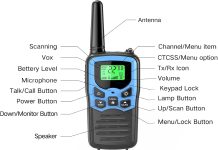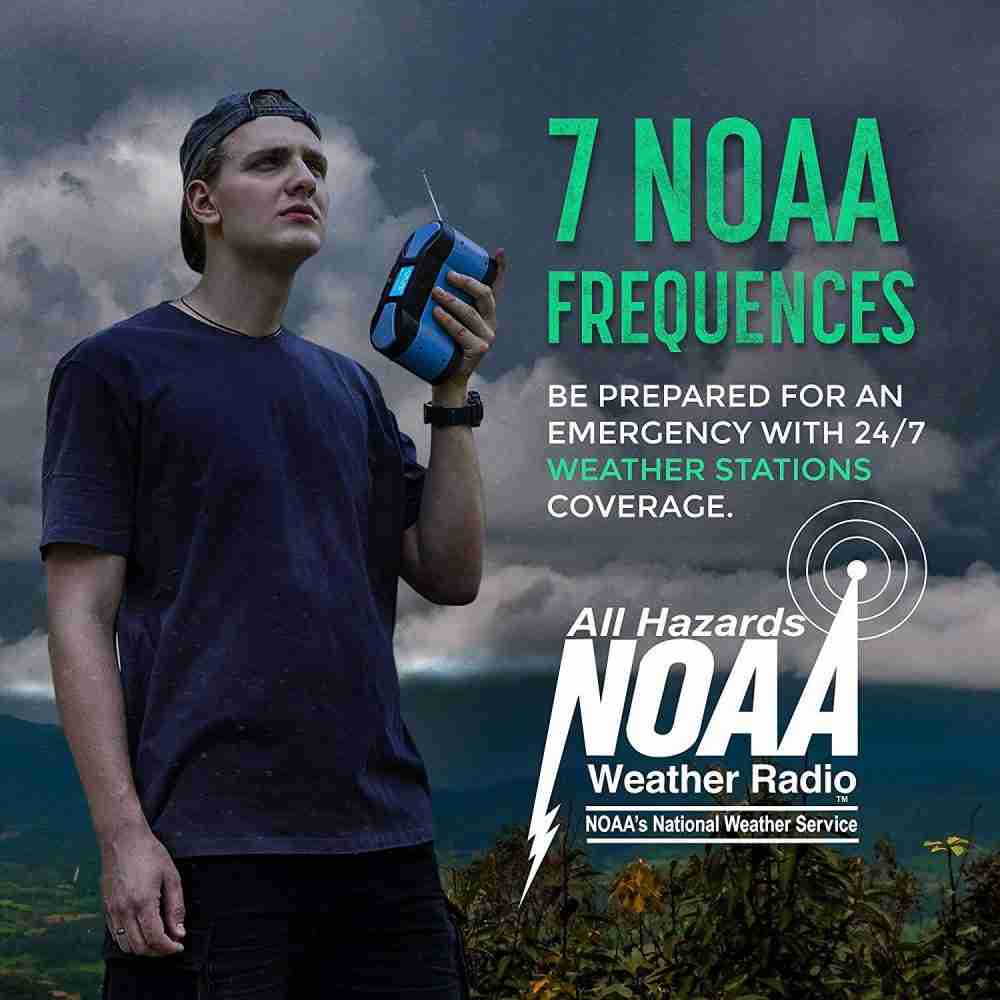Imagine this: you’re out in the wilderness, surrounded by towering trees and breathtaking landscapes, on a camping trip with friends or family. But suddenly, the sun starts to set, and darkness engulfs everything around you. Without the proper gear, your adventure could quickly take a turn for the worse. That’s where batteries come in. These seemingly small and insignificant power sources have the incredible ability to light up flashlights, lanterns, and essential electronic devices that will not only keep you safe but enhance your camping experience. In this article, we explore the importance of batteries and how they can make all the difference on your next outdoor adventure.
I. Types of Batteries
When it comes to powering our devices on a camping trip, batteries are our best friends. But with so many options out there, it’s important to understand the different types of batteries available to us.
A. Alkaline Batteries
Alkaline batteries are the most common type of battery found in households. They are inexpensive, widely available, and can provide a reliable source of power for a variety of devices. One of the advantages of alkaline batteries is their long shelf life, which makes them perfect for stocking up before a camping trip. However, they are not rechargeable and need to be properly disposed of once they run out of power.
B. Lithium Batteries
Lithium batteries are known for their high energy density, making them ideal for power-hungry devices. They are lightweight, have a longer lifespan than alkaline batteries, and perform well in extreme temperatures. Lithium batteries are often used in digital cameras, GPS devices, and other electronics that require a consistent and long-lasting power source. While they are more expensive than alkaline batteries, the benefits they offer make them a popular choice for outdoor enthusiasts.
C. Rechargeable Batteries
If you’re looking for a more eco-friendly option, rechargeable batteries are the way to go. They can be recharged and reused multiple times, reducing waste and saving you money in the long run. Rechargeable batteries come in different sizes and chemistries, with nickel-metal hydride (NiMH) and lithium-ion (Li-ion) being the most common. While they do require a charger, investing in rechargeable batteries is a sustainable choice that can significantly reduce your environmental impact.
D. Solar Batteries
Solar batteries, also known as solar rechargeable batteries, are designed to be charged using sunlight. They are often used in solar-powered devices such as solar lanterns, solar chargers, and solar panels. Solar batteries come in a variety of chemistries, including nickel-cadmium (Ni-Cd), nickel-metal hydride (NiMH), and lithium-ion (Li-ion). These batteries are a great option for eco-conscious campers who want to harness the power of the sun to keep their devices running.
II. Choosing the Right Battery
With so many battery options available, it’s important to choose the right one for your device and your camping needs. Here are some factors to consider when selecting a battery.
A. Consider the Device’s Power Requirements
Before purchasing batteries, it’s essential to know the power requirements of your devices. Some devices, such as high-powered flashlights or cameras, may require batteries with a higher voltage or capacity. Make sure to check the device’s manual or specifications to ensure you choose the right battery that can meet its power demands.
B. Evaluate Battery Lifespan
Battery lifespan is an important consideration, especially when camping in remote locations with limited access to replacements. Alkaline batteries, while inexpensive, may not last as long as lithium batteries or rechargeable batteries. If you’re going on a multi-day trip, opt for batteries with a longer lifespan to avoid the inconvenience of running out of power in the middle of your adventure.
C. Look for Eco-Friendly Options
If sustainability is a priority for you, consider investing in rechargeable batteries or solar batteries. While they may have a higher upfront cost, they can be reused multiple times, reducing waste and minimizing your environmental impact. Additionally, some manufacturers offer recycling programs for rechargeable batteries, making them an even greener choice.
D. Consider Cost and Availability
While it’s important to consider the quality and performance of batteries, cost and availability are also key factors. Alkaline batteries are affordable and widely available in most stores, making them a convenient choice for last-minute purchases. However, if you’re heading into a remote area, it may be wise to stock up on batteries beforehand to ensure you have an ample supply to last throughout your camping trip.
III. Powering Flashlights and Lanterns
When camping, flashlights and lanterns are essential tools for navigating through the darkness and creating a cozy ambiance. Choosing the right batteries for these devices can make all the difference in the quality and longevity of their performance.
A. Flashlight Batteries
Flashlights typically require AA or AAA batteries, although larger flashlights might use C or D batteries. Alkaline batteries are a reliable option for flashlights, providing enough power to illuminate your surroundings. Lithium batteries, on the other hand, offer a longer lifespan and perform well in colder temperatures, making them an excellent choice for camping trips in winter or high-altitude settings.
B. Lantern Batteries
Lanterns, especially LED lanterns, are a popular choice for campers who want to brighten up their campsites. These lanterns often require larger batteries, such as D or even 6-volt lantern batteries. Alkaline batteries are a suitable choice for most lanterns, providing enough power to keep your campsite well-lit. However, for longer trips or situations where a consistent and longer-lasting power source is needed, rechargeable batteries or lithium batteries can be a more sustainable and reliable option.
C. Tips for Maximizing Battery Life
To make the most out of your flashlight and lantern batteries, there are a few tips you can follow. Firstly, always turn off your devices when not in use to conserve battery power. Additionally, if your device offers adjustable brightness settings, opt for a lower brightness level when ambient lighting conditions allow. Lastly, keep your batteries stored in a cool, dry place when not in use, as extreme temperatures can negatively impact battery performance.
IV. Powering Electronics
Camping is no longer just about unplugging from the digital world. Many campers bring along electronic devices to capture memories, stay connected, or enhance their outdoor experience.
A. Common Camping Electronics
From digital cameras and GPS devices to smartphones and portable speakers, there is a wide range of electronic devices that campers bring to the great outdoors. Each of these devices has specific power requirements, and choosing the right batteries is crucial for their optimal performance.
B. Battery Compatibility
Before relying on batteries to power your camping electronics, ensure they are compatible with your devices. Some electronics may have specific requirements, such as voltage levels or battery chemistry. Always consult the device’s user manual or specifications to determine which batteries are recommended.
C. Tips for Extending Battery Life
To extend the life of your batteries while powering your camping electronics, there are a few strategies you can employ. Lowering the screen brightness on your devices, disabling unnecessary features or apps, and using power-saving modes can all help conserve battery power. Additionally, turning off Wi-Fi and Bluetooth connections when not in use can further extend battery life. Consider investing in portable chargers or solar chargers as backup power sources for your electronics, especially on longer camping trips.
V. Recharging Options
When your batteries run out of power, recharging options become essential to keep your devices and gadgets functioning. Here are a few recharging options to consider for your camping adventures.
A. Portable Chargers
Portable chargers, also known as power banks, are compact battery packs that can store and deliver power to your devices. These chargers are usually charged via a USB connection and can be used to recharge smartphones, tablets, cameras, and other small electronic devices. Portable chargers come in different capacities, so choose one that suits your camping needs, ensuring it has enough power to keep your devices charged throughout your trip.
B. Solar Chargers
For campers who want to harness the power of the sun, solar chargers are a great option. These chargers use solar panels to convert sunlight into electricity, which can then be used to recharge your devices. Solar chargers come in various sizes and capacities, from compact and lightweight options to larger panels that can generate more power. Keep in mind that solar chargers may take longer to recharge devices compared to other options, so plan accordingly and make sure to take advantage of sunny days to maximize their charging potential.
C. Car Chargers
If you’re camping in an area accessible by car, car chargers can be a convenient option. These chargers are designed to plug into your vehicle’s cigarette lighter or USB port and can quickly recharge your devices while you’re driving. Car chargers are particularly useful for longer camping trips where you have access to your vehicle and can easily recharge your batteries on the go.
VI. Battery Safety Tips
While batteries are essential for powering our devices, it’s important to handle them safely and responsibly to prevent accidents and protect the environment.
A. Proper Storage
When not in use, batteries should be stored in a cool, dry place. Avoid storing them in direct sunlight or extremely hot or cold temperatures, as this can affect their performance and shorten their lifespan. It’s also a good idea to keep batteries in their original packaging or use a dedicated battery storage case to prevent contact with other metal objects, which can cause short circuits.
B. Handling and Disposal
When handling batteries, it’s essential to follow proper safety protocols. Always insert batteries correctly, following the polarity markings on the device or battery compartment. Avoid exposing batteries to excessive heat, as this can cause leakage or even explosion. When it comes to disposal, check local regulations for proper disposal methods. Many communities have recycling programs or designated drop-off points for batteries to prevent harmful chemicals from leaching into the environment.
C. Avoid Extreme Temperatures
Extreme temperatures can have a significant impact on battery performance. High temperatures can cause batteries to discharge more quickly, while freezing temperatures can reduce their capacity. Whenever possible, avoid exposing batteries to extreme temperatures by keeping them in insulated containers or by using thermal covers. This will help prolong their lifespan and ensure optimal performance.
VII. Common Battery Mistakes to Avoid
To get the most out of your batteries and prevent any mishaps during your camping trip, it’s important to avoid common mistakes that can compromise their performance or safety.
A. Mixing New and Old Batteries
Mixing new and old batteries is a common mistake that can lead to uneven power distribution and reduced performance. When using multiple batteries in a device, always replace them as a set to ensure they have the same capacity and voltage. Mixing different battery types or brands can also cause problems, as they may discharge at different rates or have different voltage levels.
B. Leaving Batteries Inside Devices
Leaving batteries inside devices when not in use can lead to battery drain over time, even if the device is turned off. To prevent this, remove the batteries from your devices when you’re not using them. This will help preserve their charge and prevent any potential leakage or damage to the device in case of battery failure.
C. Disposing of Batteries Incorrectly
Improper disposal of batteries can have serious environmental implications. Many batteries contain heavy metals and other toxic materials that can contaminate soil and water if not disposed of properly. Always check local guidelines and recycling programs for the proper disposal of batteries. Many hardware stores, electronics retailers, or recycling centers offer battery recycling services, ensuring that they are handled in an environmentally responsible manner.
VIII. Emergency Preparedness
When it comes to emergency situations during camping trips, having reliable backup power options is crucial. Here are some tips for emergency preparedness to ensure you’re never left in the dark.
A. Backup Power Options
In case of power outages or unforeseen circumstances, having backup power options can be a lifesaver. Invest in a portable generator or an inverter generator to power essential devices and equipment. These generators can provide temporary power during emergencies, allowing you to stay connected, provide lighting, and keep important devices running.
B. Stocking Extra Batteries
Always have spare batteries on hand for all your essential devices. Whether it’s extra alkaline batteries for flashlights or rechargeable batteries for your camping electronics, having backups ensures that you’re prepared for any situation. Keep a stockpile of batteries in a designated container or in your emergency kit, so they’re easily accessible when needed.
C. Creating a Battery-Powered Emergency Kit
Putting together a battery-powered emergency kit is a wise investment for any camper. Include essential items such as flashlights, lanterns, radios, cell phone chargers, and other battery-operated devices. Make sure to include extra batteries and a portable charger to keep your devices powered, especially in situations where access to electrical outlets may be limited or unavailable.
IX. Battery Recycling and Disposal
As responsible campers, it’s important to properly dispose of batteries to protect the environment and ensure their safe handling. Here are some key considerations for battery recycling and disposal.
A. Importance of Recycling Batteries
Recycling batteries is crucial for environmental protection. Batteries contain heavy metals such as mercury, lead, and cadmium, which can be harmful if released into the environment. Recycling batteries not only prevents these toxins from leaching into soil and water but also helps recover valuable materials that can be used in the production of new batteries, reducing the need for raw materials.
B. How to Properly Dispose of Batteries
Proper disposal of batteries begins with identifying local recycling options and programs. Many recycling centers, electronics retailers, and even some government agencies offer battery recycling services. Check for drop-off locations near your home or camping destination, and make use of these facilities to safely dispose of your batteries. If specific recycling options are not available, be sure to seal the batteries in a plastic bag before disposing of them in the regular trash to minimize the risk of environmental contamination.
C. Recycling Centers and Programs
To make battery recycling more accessible, many communities have established recycling centers and programs. These centers specialize in collecting and processing different types of batteries, ensuring their safe disposal or recycling. Additionally, some manufacturers and retailers offer take-back programs or recycling mail-in services for rechargeable batteries. Take advantage of these initiatives to ensure your batteries are recycled responsibly.
X. Conclusion
In conclusion, batteries play a vital role in powering our devices and enhancing our camping experiences. Understanding the different types of batteries available, choosing the right battery for the device’s power requirements, and properly disposing of used batteries are all essential aspects of responsible battery usage. By following these guidelines and being mindful of battery safety, we can enjoy the convenience of portable power while minimizing our environmental impact. So next time you embark on a camping trip, remember to pack the right batteries and make the most out of your outdoor adventures!






































